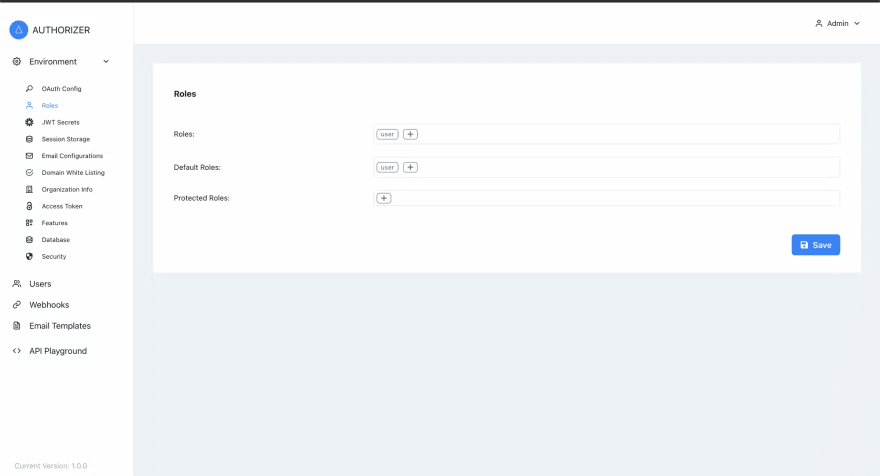We’re excited to announce the stable version of https://authorizer.dev with the most significant updates 🥳. The most complex part of your application, i.e. auth has never been this simple in the open-source space before. Bring your database and have auth layer ready for the application within minutes 🚀.
You can get started in 3 easy steps
Step 1: Deploy Authorizer Instance
Step 2: Setup the instance using built-in dashboard
Step 3: Integrate the universal login page with your application
Let’s have a look at the amazing set of features 🚀
Secure Session Management
Authorizer follows the best practices in the auth space and gives you secure session management using
- HTTP only cookies (Recommended for web)
- Authorization Code Flow (Recommended for mobile applications)
- OAuth2 with Open ID compatible APIs
Multiple Auth Recipes
Authorizer comes with an amazing set of auth recipes out of the box, which includes major social media logins, magic link login, and basic authentication. You can easily configure this recipe using the dashboard that is shipped with every instance of Authorizer.
Myriad Database Support
Authorizer now supports 11+ databases including major SQL, NoSQL, and GraphDB with the motive Your Data Your Control. Bring your database and it will just add a few tables/collections in your database to generate auth layer for you.
Role Base Access Control
Secure your APIs and UI depending on various roles for your application. You can easily configure the user roles in your dashboard and have them validated in the JWT tokens.
Integrate / Implement
Every instance of Authorizer comes with a universal login page which you can integrate in your application with a few lines of code. This page is rendered based on the configuration you have in the dashboard. Still, if you need to build the custom UI then we have React SDK and JS SDK which you can leverage.
Custom Emails
Now you can send emails for various Authorizer events with your own design and messaging. You can also give personal touch to this emails with the help of dynamic variables that will be replaced before sending emails
Multi-factor Authentication
Now you can add one more layer of security by enabling multi-factor authentication which will send one time passwords (OTP) via emails to users and after entering that password only user will be able to access your application. This feature is enabled for basic authentication at the moment.
Listen to events
Most advanced feature of Authorizer. You can now listen to various Authorizer events in your APIs with the help of webhooks and take further actions if required
With all this amazing set of features, you can deploy Authorizer instances on your infrastructure using Docker, Kubernetes, or Binaries. Also, you can use the one-click deployment options that we offer to get started quickly 🚀
I hope you like it and give it a try. You can support our work by contributing to the project, sending Github sponsorship, buying us coffee, or giving us a star on Github. For more information check out the links below.
Website: https://authorizer.dev
Docs: https://docs.authorizer.dev
Github: https://github.com/authorizerdev/authorizer
React SDK: https://github.com/authorizerdev/authorizer-react
Javascript SDK: https://github.com/authorizerdev/authorizer-js
Youtube: https://youtube.com/playlist?list=PLSQGbUjHc6bpaAgCiQPzNxiUPr7SkDAFR
Examples: https://github.com/authorizerdev/examples/
Discord: https://discord.gg/Zv2D5h6kkK
Github Sponsorship: https://github.com/sponsors/authorizerdev/
Buy me Coffee: https://www.buymeacoffee.com/lakhansamani














Top comments (0)